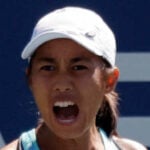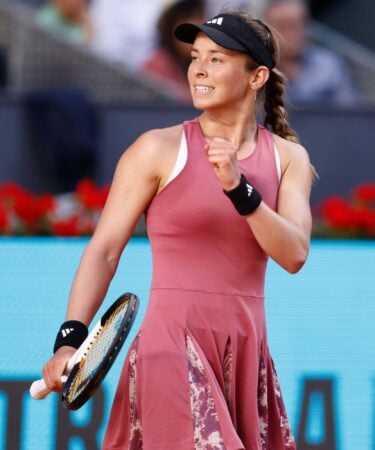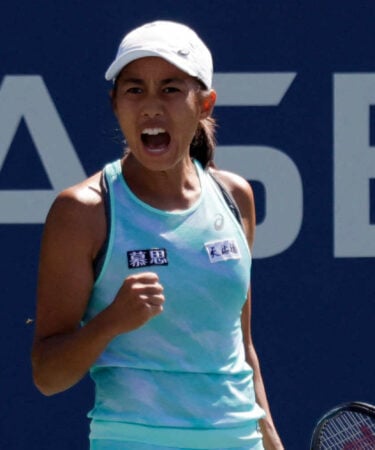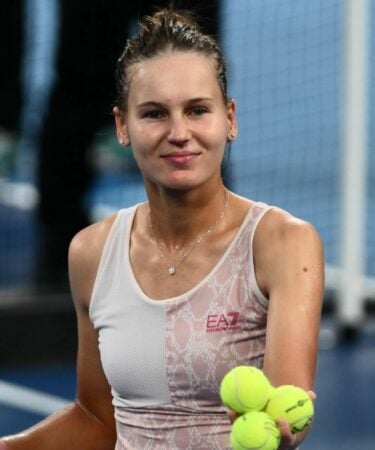Introducing the new best name in tennis: Katie Volynets (call her Volley Nets)
The 21-year-old American qualifier is into round three after beating No 9 seed Veronika Kudermetova
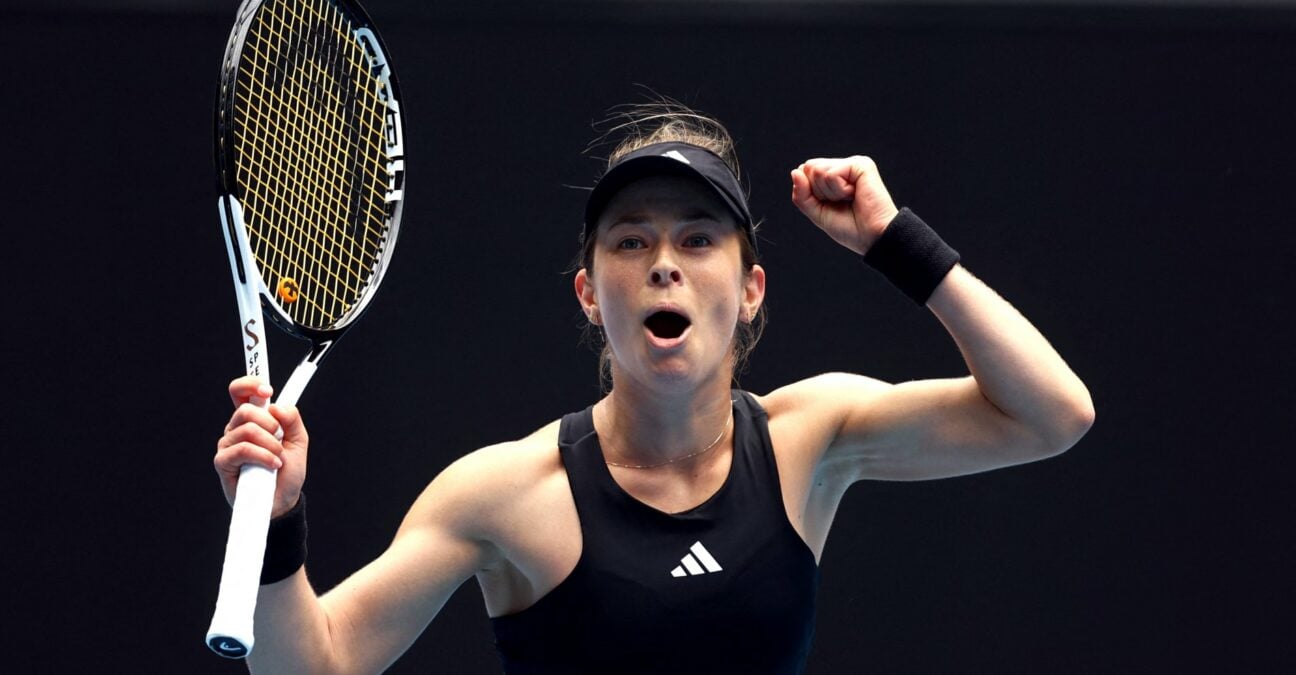 Katie Volynets (AI / Reuters / Panoramic)
Katie Volynets (AI / Reuters / Panoramic)
Has there ever been a better name for a tennis player than this?
Katie Volynets, a 21-year-old American ranked 113 who came through qualifying, earned the win of her career on Thursday as she beat the ninth seed Veronika Kudermetova 6-4, 2-6, 6-2.
It’s the first time she’s been to the third round of a slam in her career and when she spoke to a few reporters soon after, she was asked how we should pronounce her surname.
“I’m going to stick to Volley nets,” she said, laughing. “Volley nets.”
We’ve had some good names before, of course. There was Ana Smashnova, a former player from Israel, and more recently, there was Tennys Sandgren who was named after the sport itself, albeit with a different spelling.
Extended family in Ukraine watching her matches from home
Volynets’ parents moved to the United States from Ukraine before she was born, but she grew up speaking Russian at home, learning English only when she started school.
“Actually my father, he speaks both Ukrainian and Russian fluently, but since my mother — they’re both from the Ukraine, but my mother spoke Russian, so then we would speak Russian in the house. Russian was actually my first language because they wanted English teachers to teach me English, so I wouldn’t pick English up from them. Then when I went to kindergarten, I pretty much started communicating in English with all my peers.”
Volynets speaks with almost no hesitations or mannerisms. “That’s good,” she said. “I try not to say um!”
And she is also happy to speak about anything, including her extended family in Ukraine.
“I have a lot of cousins in Ukraine, and actually they watch every single match,” she said. “They usually write me, and I communicate with them. It’s really special. It’s really a difficult time. Before everyone used to be able to move about the country however they want to and go on with their days, and now it’s just, you know, day-to-day. I really feel for them. And to have their support through all of this is incredible. Whenever I come out on the courts, I hope that I’m supporting them as well because they’re watching, and I stay strong for them.”
Indoor tennis, avoiding the chandelier
Volynets began playing tennis at home, or more accurately inside her home.
“Actually, when my parents moved from Ukraine, their friend Charles gave them a tennis racquet, and then my brother, who is actually 12 years older than me, he started to play with my parents a little bit, and I was, like, five at that time,” she said. “I would always bring my toys and colouring books and cars, whatever I had, to the tennis court.
“One day I got really bored with my colouring books. I think I finished one of them, so then I was, like, ‘Dad, can I borrow your racquet? Can I try?’ Then I hit the first ball and then I was, like, ‘Dad, can I have tennis lessons?’ I didn’t have a racquet yet. So then we were home one day. He brought something home, and he had it behind his back, and he was, like, ‘Guess what this is?’ I was, like, ‘A racquet?’ And it was a racquet.
“The funny thing is we started playing in the house. Like, my dad would be, like, hit it into my hand, and there was, like, a chandelier up there. No pressure.”
Tennis more varied than swimming for Volynets
Had her mum had her way, Volynets might have been a swimmer instead of a tennis player.
“The funny thing is my mum was a very good swimmer, so she put me in swimming,” she said. “And I would actually fake stomach aches after tennis practice because I really didn’t want to go swimming.
“She would (say) you’ll feel better once you’re in the pool. But to me tennis is just — you don’t repeat one shot over and over. Like in swimming I feel — nothing against swimming, but for me personally I felt that you just take one lap, two laps, three laps, four different strokes. In tennis there’s so many different shots, and that kept it really exciting for me all the time. I’m still really excited about every shot. In addition, there’s a huge mental aspect of tennis, which keeps it fresh.”
Beating Kudermetova was the best win of her career and will move her inside the world’s top 100 for the first time.
Until she was 12 years old, she would go to Ukraine every year to see family, “mostly in Kyiv and Dnipropetrovsk”. Despite her roots, though, she said the fact that she was playing a Russian did not enter her mind or give her extra motivation.
“I would say that when I step on the court, I kind of try to put the politics aside and just focus on the tennis,” she said. “Having said that, I always worry about my family, of course, in the Ukraine. But I don’t hold anything against the players, and I just try to focus on the tennis.”
Practising her languages in the locker room
Being around the world’s best players this week has been an eye-opener for Volynets, especially in the locker-rooms, where she has been mixing it with some famous names.
“It’s really cool,” she said. “There are many different lockers, and I happened to choose the same one as last year because that’s how I am. Then it’s really exciting to see all of the other players, and it’s exciting to be able to practice my Russian and Ukrainian with other players. I have a couple of Ukrainian friends, like Daria Snigur and Kateryna Baindl, and I really love practising my different languages with them. That’s something that’s really fun for me.”
Volynets will play Zhang Shuai, the No 23 seed, in the third round on Saturday.




